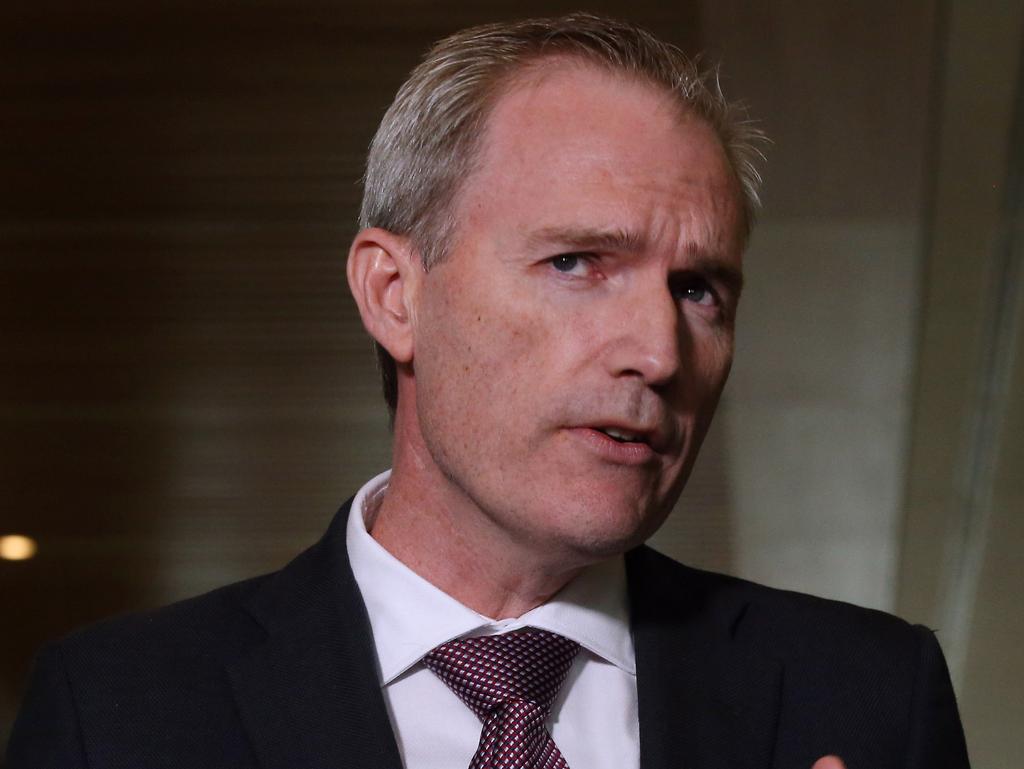
The Combating Misinformation and Disinformation Bill will not limit free speech; it merely gives a government agency the authority “to suppress the amount of misinformation that is being disseminated”.
The Australian Communications and Media Authority will not be able to force digital platforms to take stuff down. It merely ensures “enforceable transparency”, giving the regulator the power to fine them until they beg for mercy.
The new laws will not prevent Australians airing honest opinions or interpreting facts in a manner inconvenient to the government. Far from it, the Albanese government “values freedom and the contest of ideas”, recognising “a strong, sustainable and diverse media industry, with informed and engaged citizens, is the cornerstone of a healthy democracy”.
It merely tries to keep us safe by attempting to “draw the line” at speech that can be “reasonably expected to contribute to serious harm or the risk of serious harm”.

Seldom have Australians experienced First Amendment envy as strongly as we are now. If only the right to free speech was embedded in our Constitution, as it is in the US, and not merely implied.
A censorious spirit has gone mainstream in Western societies in recent years. To defend free speech brands one as a crusty and possibly malevolent conservative.
For Herbert Marcuse, the German-born intellectual influencer and father of cancel culture, freedom of opinion, assembly, or speech was simply “an instrument for absolving servitude” that merely served to entrench oppression. Alexandria Ocasio-Cortez, the guiding figure for America’s angry tertiary-educated millennials, has taken to putting the words “free speech” in scare quotes, mocking defenders of the US constitution’s First Amendment as “free speechers” and their arguments as “free speechy”.
Anthony Albanese may or may not have read Marcuse, whose influence on identity politics and cancel culture is charted in Yascha Mounk’s important new book, The Identity Trap. Yet our PM, being a vibey kind of guy, will doubtless have sensed the changing mood in progressive politics over his four decades in professional politics and the rise of the illiberal instinct to shut down debate. Marcuse thought it reasonable to silence the voices of those in favour of “armament, chauvinism, discrimination on the grounds of race and religion, or which oppose the extension of public services, social security, medical care, etc”. Albanese characteristically evades the detail by labelling every argument he opposes as misinformation and disinformation. This new politicised language has replaced the word “inappropriate” in the lexicon of the politically correct.

One of the strengths of bicameral parliament is the expectation that the process of horse-trading and review will knock off rougher edges of poorly drafted legislation. The Misinformation and Disinformation Bill falls in that category of legislation incapable of redemption no matter how many carve-outs are created. The balance of power in the Senate means the legislation will be even more illiberal before it returns to the House since the Greens’ major criticism of the bill is that it’s far too tame.
This legislation must be resolutely opposed because it jumps a threshold we must never cross. We don’t have to reach far into 20th-century history to discover that granting the state the power to declare what can and can’t be said is a shortcut to totalitarianism.
The weakening fidelity to freedom of speech in the past decade is not confined to the political left. Last month, the British Conservative government’s Online Safety Act became law, giving the Secretary of State the power to direct Ofcom, the media regulator, to suppress or record a wide range of speech and media deemed “harmful”. The British government’s decision will at least be subject to parliamentary approval, and the legislation has avoided the words misinformation and disinformation, which have been weaponised by the left around the Western world to win arguments without actually having them. Yet, as in Australia, the government framed the legislation as a mere extension of the moves to ensure online safety, particularly for children. It falls for the false idea that speech can be harmful, blurring the line between genuinely intimidating speech and words that merely cause discomfort.
Tellingly, it took clear-headed, independent thinkers such as Claire Fox, a former member of the Revolutionary Communist Party and now an unaffiliated member of the House of Lords, to highlight the naivety in Conservative thinking.
Perhaps the Morrison government might have woken up to the dangers lurking in its Online Safety Bill had it remained in office. The murmuring of dissent in the party room might have forced the communications minister back to the drawing board, recognising the best way to protect kids online is to empower parents, not faceless bureaucrats in ACMA.

Yet the forced eviction of Liberal MPs clinging to inner metropolitan seats gives Peter Dutton the clarity to return to first principles and present policies based on conviction rather than compromise. The voice referendum should remove any temptation to sit in the middle of the road where conservative leaders are invariably run over. The Coalition must oppose the government’s bill with every ounce of its breath.
The PM, too, must learn the lessons of the referendum and avoid assuming the Misinformation and Disinformation Bill will sail through on the vibe. He must avoid assuming the soft interviews on FM radio are a measure of public opinion.
For different reasons, a broad section of the electorate no longer trusts or even listens to the legacy media. Its authority has been undermined by the slavish self-censorship during Covid-19 when many editors became too timid to circulate anything that deviated from the official line.
A younger generation distrusts it for different reasons and, worryingly, now looks for its news on Instagram and TiKTok.

These people’s allegiance is not to traditional professional media, which the legislation takes pains to protect. It is to online alternative media which has operated relatively freely until now but which this legislation will place with ACMA’s heavy-handed control.
The backlash is growing and not just on the centre-right, which may have influenced the government’s decision to delay the legislation’s introduction to parliament until next year.
After the humiliation of the referendum, Albanese knows he cannot afford to lose this battle, those who value our liberal democracy, he cannot be allowed to win.
Nick Cater is senior fellow at the Menzies Research Centre.








Woe betide anyone who dares accuse the Albanese government of censorship. That is precisely the kind of misinformation the proposed Broadcasting Act amendments will outlaw.